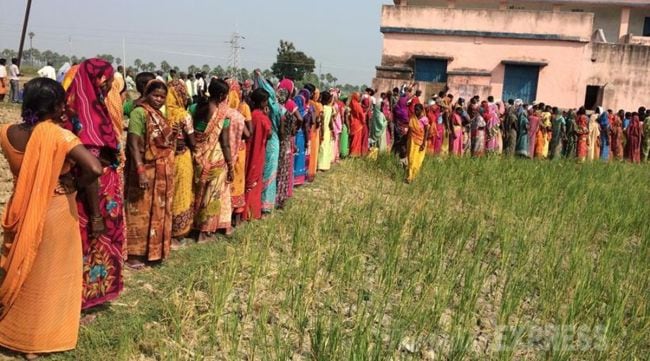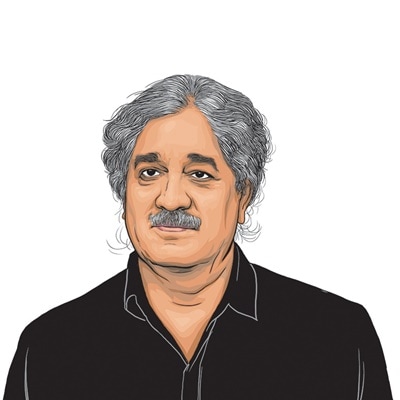Opinion Bihar’s maternal welfare state can inspire a new kind of feminist democracy in South Asia
The state’s welfare model places women, especially mothers and working women, at the heart of social protection, political influence and grassroots governance
 Since 2005, Bihar’s welfare policies have been structured around the women’s life cycle, from birth to education, safety and employment.
Since 2005, Bihar’s welfare policies have been structured around the women’s life cycle, from birth to education, safety and employment. In the shifting landscape of India’s welfare politics, Bihar seems to stand out as a laboratory of gendered transformation. Over the past two decades, the state has evolved into what can be called a “maternal welfare state.” From the famous Balika Cycle Yojana and Mukhyamantri Kanya Utthan Yojana to the newly launched Mukhyamantri Mahila Rozgar Yojana (MMRY), Bihar’s welfare architecture recasts women not as passive beneficiaries but as entrepreneurs, civic actors, and autonomous political constituencies. One of the unintended outcomes of this maternal welfare state is the marked improvement in law and order, an indispensable component for women’s mobility and active participation in social development.
Unlike the Danish sociologist Gøsta Esping-Andersen’s acclaimed notion of welfare regimes, centred on the state or the labour market, Bihar’s welfare model places women, especially mothers and working women, at the heart of social protection, political influence and grassroots governance. Here, welfare is relational and participatory, turning care into civic agency. In Protecting Soldiers and Mothers (1992), political scientist Theda Skocpol traced the origins of welfare states to civic mobilisations, especially of women’s groups that redefined state responsibility around care and citizenship. Her insight that welfare arises from organised social capacity, not mere benevolence, resonates deeply in Bihar. Women’s collective action through Jeevika’s Self-Help Groups (SHGs) and Panchayati Raj Institutions (PRIs) has reconstituted the foundations of grassroots governance.
Since 2005, Bihar’s welfare policies have been structured around the women’s life cycle, from birth to education, safety and employment. Reducing the travel time and safety cost barriers, the Mukhyamantri Balika Cycle Yojana (2006) raised girls’ enrolment in the secondary levels. Research shows that it also led to aspirational shifts among girls. Similarly, Kanya Uttahan Yojana (2018) provides financial assistance to each girl across ten stages, incentivising education and delaying marriage. Complementary initiatives like the Balika Poshak Yojana, Kanya Suraksha Yojana and Janani Evam Bal Suraksha Yojana extend maternal welfare protection through conditional cash transfers and birth incentives. Together, these programmes reflect a welfare rationality that revalorises women’s maternal role, developmental potential and girl child’s aspirational success.
Further, launched on September 26, Mukhyamantri Mahila Rozgar Yojana (MMRY) marks a moment of radical transformation in Bihar’s maternal entrepreneurial welfare. The scheme, popularly known as Das Hazaria, grants Rs 10,000 to women enrolled as members of Self-Help Groups with additional support of up to Rs 2 lakh for micro-enterprises. By embedding credit, training and market linkages within the SHG network, MMRY shifts the welfare paradigm from protection to production and capability enhancement. At its core are the Jeevika Didis — over 1.4 crore women organised under the Bihar Rural Livelihoods Mission (BRLP). Initially mobilised for microcredit and savings, they have become trusted last-mile agents ensuring social entitlements like pensions, rations, scholarships, and health services while also managing micro-enterprises. In Skocpol’s terms, Jeevika forms the civic foundation of Bihar’s welfare state, a social infrastructure translating welfare into social action. This model of innovative horizontal governance bridges bureaucracy and community networks, making last-mile delivery participatory and accountable rather than clientelist.
Over time, these Jeevika Didis have also emerged as an independent, caste-neutral political constituency. Their collective identity has gradually displaced traditional caste loyalties and male-centred political mediation. Migration researchers note that such a shift coincides with the large-scale male outmigration from Bihar, which has left behind or, as some scholars argue, “left ahead” women who have assumed new responsibilities in households, communities, and local governance. This shift is reflected in the steady rise of female electoral participation, with women outvoting men by 5 to 11 percentage points in recent Bihar elections. The Jeevika vote has thus evolved into an autonomous and aspirational bloc, signalling a new form of post-caste political citizenship rooted in gender solidarity and civic competence.
Bihar’s welfare transformation is also inseparable from its restructuring of representation. In 2006, the state introduced 50 per cent reservation for women in Panchayati Raj Institutions. Building on this, Bihar also instituted 35 per cent reservation for women in police services and extended it horizontally across all government jobs. This policy has fostered a new class of women officials who combine civic experience with administrative authority, institutionalising gender parity in governance.
Equally significant is Bihar’s break with notoriously inefficient clientelist welfare politics. Direct Benefit Transfers, Aadhaar-linked disbursals, and community verification through Jeevika and PRIs ensure transparency and rule-based access. Welfare is now experienced as entitlement, not political favour, which scholars term “programmatic governance.” This reflects what theorists describe as maternal citizenship, a form of political agency rooted in welfare access, care work, and collective identity.
Whatever the results of the fiercely competitive assembly elections may be, Bihar’s model could shape the future of welfare in South Asia, making it a feminist democracy. Although the state continues to face structural challenges such as limited industrialisation, job scarcity, and large-scale migration, its evolving maternal entrepreneurial welfare model demonstrates how even a resource-constrained state can reimagine welfare as a site of democratic renewal and gendered transformation.
The writer is a Professor at Tata Institute of Social Sciences, and author of Community Warriors: State, Peasants, and Caste Armies in Bihar. Views are personal






